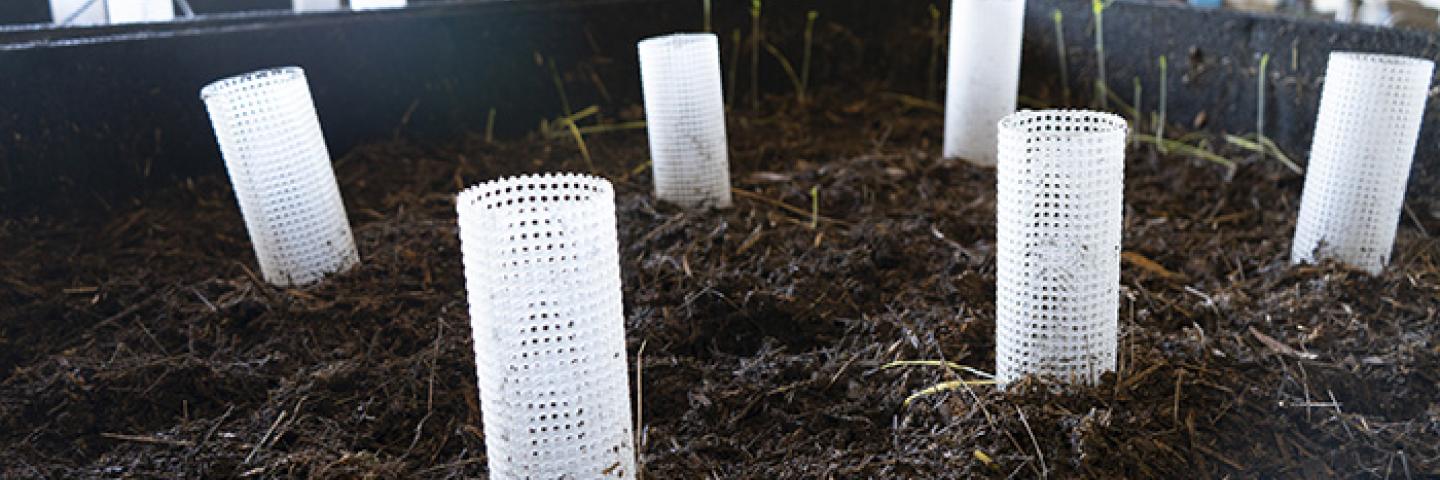USDA Invests Approximately $11.5 Million in Composting and Food Waste Reduction Projects in 23 States, Including Montana

Bozeman, January 29, 2024 –The U.S. Department of Agriculture (USDA) is investing approximately $11.5 million in 38 cooperative agreements that support innovative, scalable waste management plans to reduce and divert food waste from landfills. This includes three projects in Montana.
The Composting and Food Waste Reduction cooperative agreements, which are funded by the American Rescue Plan Act, are part of USDA’s broad support for urban agriculture. The program is jointly administered by USDA’s Office of Urban Agriculture and Innovative Production and the National Institute of Food and Agriculture (NIFA). The recommended projects will be implemented between now and 2026.
“These Composting and Food Waste Reduction projects help reduce food waste, produce compost for soil health, and even supplement the community food bank,” said Tom Watson, State Conservationist of USDA’s Natural Resources Conservation Service (NRCS) in Montana.
Added Maureen Wicks, State Executive Director for Farm Service Agency: “Local strategies and tools like these are important climate solutions and also contribute to food security at the community level here in Montana.”
USDA prioritized projects that anticipate or demonstrate economic benefits, incorporate plans to make compost easily accessible to farmers, including community gardeners, integrate other food waste strategies, including food recovery efforts and collaborate with multiple partners. The collaboration between NIFA and the Office of Urban Agriculture and Innovative Production is part of USDA’s framework to transform the U.S. food system to benefit consumers, producers and rural communities by providing more options, increasing access, and creating new and better markets for small and mid-size producers.
Recipients include projects in 23 states. Projects in Montana include the following three projects.
City of Helena - Diverting Food Waste from the Landfill in the City of Helena and Lewis and Clark County: This project will help expand current composting projects operated by the City of Helena and increase food waste collection options throughout the Helena community. It will also build on the current green waste composting project, where the City diverts over 2,000 tons of trees, grass clippings, and leaves from the landfill every year. Through this project, the City of Helena plans to lead the state of Montana in waste reduction efforts by reducing the amount of waste sent to the landfill, improving soil quality and water retention, reducing the need for chemical fertilizers, and keeping solid waste fees low for residents.
Gallatin County - Food Rescue and Food Waste Composting: Through this project, Gallatin County would expand the biosolids compost operation to include food waste and produce compost of a quality that would be beneficial for and distributed to agricultural producers. Additionally, the Human Resource Development Council (HRDC) of Gallatin County would expand their food rescue operation to include restaurants and more farms to feed those in our community who are hungry, rescuing an estimated 100,000 additional pounds of food. Gallatin County will partner with the Gallatin Conservation District, HRDC, the Open and Local Coalition, and the Prospera Business Network for education, outreach, and compost distribution efforts.
The City-County of Butte Silver Bow - Butte-Silver Bow Composting for a Richer Hill: This project will provide a number of new avenues for food waste reduction and recovery in Butte-Silver Bow, Mont. Perishable food that is safe and edible will be recovered for use by the Butte Emergency Food Bank; compostable food waste will be collected from several local institutions and businesses; compost will be processed and tested at a local farm; final compost product will be redistributed throughout the community for soil improvement and small-scale food production efforts; and education and outreach will inform institutions, students, and community members about how to use compost to facilitate growing healthy foods locally. Students and community members will be educated about preserving, storing, and preparing food that might otherwise go to waste. Additional food grown with locally-produced compost will supply more fresh produce to the Butte Emergency Food Bank, who will also be a source of input food scraps.
For a complete list of these recommended cooperative agreement recipients and project summaries, visit usda.gov/urban. These new agreements build on USDA’s $12 million investment in 82 agreements since 2020.
More Information
The Office of Urban Agriculture and Innovative Production was established through the 2018 Farm Bill. It is led by NRCS and works in partnership with numerous USDA agencies that support urban agriculture and innovative production. These cooperative agreements are part of a broader USDA investment in urban and innovative agriculture.
Learn more at usda.gov/urban. For additional resources available to producers, download the Urban Agriculture at a Glance brochure or visit farmers.gov/urban. Additional resources on food loss and waste prevention are available at https://www.usda.gov/foodlossandwaste.
#
USDA is an equal opportunity provider, employer and lender.


